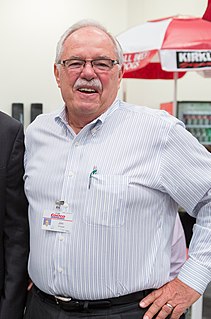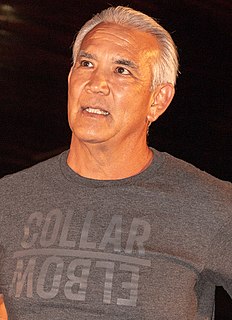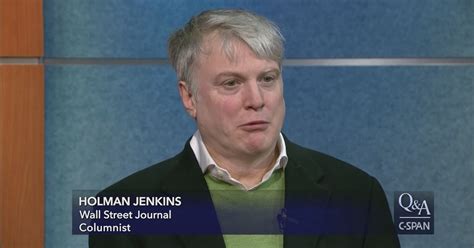Top 1200 Stock Quotes & Sayings - Page 2
Explore popular Stock quotes.
Last updated on December 4, 2024.
We are seeing a lot of cases where the startups are writing the term sheet, dictating the terms, selling common stock instead of preferred stock, where they don't give the investor veto rights or board seat or privileges, and they are really asking the investor -- why should I take your money when there is other money available.
It is argued by our GDP obsessed policy planners that eventually the money being made by the stock market operators or the IT industry would trickle down to the poor farmers in terms of ancillary jobs that would be created. But the fact is, that this has not happened, despite the boom in the stock market and the IT industry.
If you are the kind of person who makes homemade chicken stock on the regular and keeps it frozen in various sized containers for all your cooking needs, I truly commend you. Quality homemade stock will invariably add great depth of flavor and body to a recipe. But it's a luxury, not a necessity - it gilds the lily, as they say.
Driving stock up from one day to the next is not what we are about. We are about building a good company and performing for the long term. I know everyone says that, that sounds trite when I repeat it that way, but that is and has always been our attitude about our business. If we do the right things, the stock price will take care of itself, and our shareholders will be rewarded.
There are several things that can create an alpha - stock buybacks are one. High dividend yields are another, especially nowadays because the stock market yields more than the banks and the tenure treasury. But by and large, it tends to be companies with a strong cash flow, rising sales, accelerated earnings, a profit margin expansion.
The stock market has gone up and if you are stock picking, that's fine, you may do a bit better than the market. But if you want to play in another game where you can get rapid increases of value and so on and so forth, this apparently has become the new parlour game, to invest in these companies and many their cases, the private equity that has been piling in onto of the venture capital is creating the unicorn, in other words the company with the $1 billion valuation.
You might say that a creative person is a person who simply has a desire to have something, to add something to the world that's not there yet, and goes about arranging fort that to happen. When you desire a work of art and make it, you've added to the stock of art in the world. Artists are one of the people who can do that: add to the stock of things.
Unfortunately, skill in evaluating the business prospects of a firm is not sufficient for successful stock trading, where the key question is whether the information about the firm is already incorporated in the price of the stock. Traders apparently lackthe skill to answer this crucial question, but they appear to be ignorant of their ignorance.
It takes a man a long time to learn all the lessons of all of his mistakes. They say there are two sides to everything. But there is only one side to the stock market; and it is not the bull side or the bear side, but the right side. It took me longer to get that general principle fixed firmly in my mind than it did most of the more technical phases of the game of stock speculation.
Men spend their lives in anticipations,—in determining to be vastly happy at some period when they have time. But the present time has one advantage over every other—it is our own. Past opportunities are gone, future have not come. We may lay in a stock of pleasures, as we would lay in a stock of wine; but if we defer the tasting of them too long, we shall find that both are soured by age.
My father was a person who always allowed me to do what I wanted but he told me you want to go to a stock market, first get yourself qualified. So, I qualified myself as a chartered accountant and my dad said what do you want to do? I said I want to go to the stock market. He asked what will you do? I said I invest.
One, which I mention several times elsewhere, is the need for patience if big profits are to be made from investment. Put another way, it is often easier to tell what will happen to the price of a stock than how much time will elapse before it happens. The other is the inherently deceptive nature of the stock market. Doing what everybody else is doing at the moment, and therefore what you have an almost irresistible urge to do, is often the wrong thing to do at all.
One of the ironies of the stock market is the emphasis on activity. Brokers, using terms such as 'marketability' and 'liquidity,' sing the praises of companies with high share turnover... but investors should understand that what is good for the croupier is not good for the customer. A hyperactive stock market is the pick pocket of enterprise.
I love the Knicks and Rangers, right, but you still have a responsibility to your shareholders. They're not there because they're fans. You don't invest hundreds of millions of dollars in a stock because you're a fan. You do it because you think that the business is going to increase in value, that the stock price is going to go up.
The reality is that business and investment spending are the true leading indicators of the economy and the stock market. If you want to know where the stock market is headed, forget about consumer spending and retail sales figures. Look to business spending, price inflation, interest rates, and productivity gains.
I always had faith in the internet. I believed in it and thought it was obviously going to change the way the world worked. I really did not understand why others were selling their stock. As stock prices plunged, I just bought them, one after another, since I had the money. I guess I was rather lucky.
When you are a face for a long time and you turn heel, your stock value immediately goes up, especially if you're able to pull it off in the ring and on the mic. Then you ride that horse as long as you can. When it starts to falter, and when attendance drops, then you can turn back babyface. And your stock value goes up again.
Trading is a small part of the work of the stock exchanges. They are really to do with financial speculation, and they speculate on the value of the yen, the dollar, the pound, the franc, or the euro, at any given time. Billions are lost and billions are made by this speculation, and that's what the stock exchanges are about. They are for greedy minds.
It is a well-known fact that in countries in which the national debt is properly funded, and an object of established confidence, it answers most of the purposes of money. Transfers of stock, or public debt, are there equivalent to payments in specie; or, in other words, stock, in the principal transactions of business, passes current as specie. The same thing would, in all probability, happen here, under the like circumstances.
...these things become the norm: that some homeless people die of cold on the streets is not news. In contrast, a ten point drop on the stock markets of some cities, is a tragedy. A person dying is not news, but if the stock markets drop ten points it is a tragedy! Thus people are disposed of, as if they were trash.
Nothing in finance is more fatuous and harmful, in our opinion, than the firmly established attitude of common stock investors regarding questions of corporate management. That attitude is summed up in the phrase: "If you don't like the management, sell your stock." ... The public owners seem to have abdicated all claim to control over the paid superintendents of their property.
Often, there is no correlation between the success of a company's operations and the success of its stock over a few months or even a few years. In the long term, there is a 100 percent correlation between the success of the company and the success of its stock. This disparity is the key to making money; it pays to be patient, and to own successful companies.
Look, rich people already have a lot of money. There's literally trillions of dollars in cash held by corporations, their stock valuations at an all-time high. They do not need a tax cut to do anything. They can invest now, if they wanted to. They don't want to, because they can make more money just by mergers and stock buybacks and stuff like that. So, this is really just sort of a travesty.
Speculators are obsessed with predicting: guessing the direction of stock prices. Every morning on cable television, every afternoon on the stock market report, every weekend in Barron's, every week in dozens of market newsletters, and whenever business people get together. In reality, no one knows what the market will do; trying to predict it is a waste of time, and investing based upon that prediction is a purely speculative undertaking.
Will customers keep supporting the enormous overhead required to sustain ineffectual, unproductive stock picking across an array of thousands of individual funds devoted to every investing 'style' and economic sector or regional subgroup that some marketing idiot can dream up? Not likely. A brutal shakeout is coming and one of its revelations will be that stock picking is a grossly overrated piece of the puzzle, that cost control is what distinguishes a competitive firm from an uncompetitive one.
And at a relatively early age, ten or so, I invested my first share of stock. And I used to follow, look at companies and so forth. But throughout the whole period, and indeed right through my college years, while I was involved in the stock market, always interested in finance, I never thought of it as a full-time job.
Nowhere does history indulge in repetitions so often or so uniformly as in Wall Street. When you read contemporary accounts of booms or panics, the one thing that strikes you most forcibly is how little either stock speculation or stock speculators today differ from yesterday. The game does not change and neither does human nature.
Here’s how to know if you have the makeup to be an investor. How would you handle the following situation? Let’s say you own a Procter & Gamble in your portfolio and the stock price goes down by half. Do you like it better? If it falls in half, do you reinvest dividends? Do you take cash out of savings to buy more? If you have the confidence to do that, then you’re an investor. If you don’t, you’re not an investor, you’re a speculator, and you shouldn’t be in the stock market in the first place.
Who would think of buying or selling a private business because of someone's guess on the stock market? The availability of a quotation for your business interest (stock) should always be an asset to be utilized if desired. If it gets silly enough in either direction, you take advantage of it. Its availability should never be turned into a livability whereby its periodic aberrations in turn formulate your judgements.
The correct attitude of the security analyst toward the stock market might well be that of a man toward his wife. He shouldn't pay too much attention to what the lady says, but he can't afford to ignore it entirely. That is pretty much the position that most of us find ourselves vis-à-vis the stock market.
There was no actually stock footage in "Medium Cool." I wrote the script. I wrote the riots. And I integrated the actors in the film in the park during the demonstrations. But nowhere was it like we had stock footage and then later, in editing, integrated it into the film. It was all done at the time.
For instance, let us say that a new stock has been listed in the last two or three years and its high was 20, or any other figure, and that such a price was made two or three years ago. If something favorable happens in connection with the company, and the stock starts upward, usually it is safe play to buy the minute it touches a brand new high.
It be urged that the wild and uncultivated tree, hitherto yielding sour and bitter fruit only, can never be made to yield better; yet we know that the grafting art implants a new tree on the savage stock, producing what is most estimable in kind and degree. Education, in like manner, engrafts a new man on the native stock, and improves what in his nature was vicious and perverse into qualities of virtue and social worth.
A broker who discovers an undervalued stock does not advertise it until he has bought a large enough quantity without letting the price go up. When the brokers' connection with a stock becomes public knowledge, it is usually a sure sign of manipulation and that the broker is seeking to drive up the price.
Fear and hope remain the same; therefore the study of the psychology of speculators is as valuable as it ever was. Weapons change, but strategy remains strategy, on the New York Stock Exchange as on the battlefield. I think the clearest summing up of the whole thing was expressed by Thomas F. Woodlock when he declared: “The principles of successful stock speculation are based on the supposition that people will continue in the future to make the mistakes that they have made in the past.”





















































